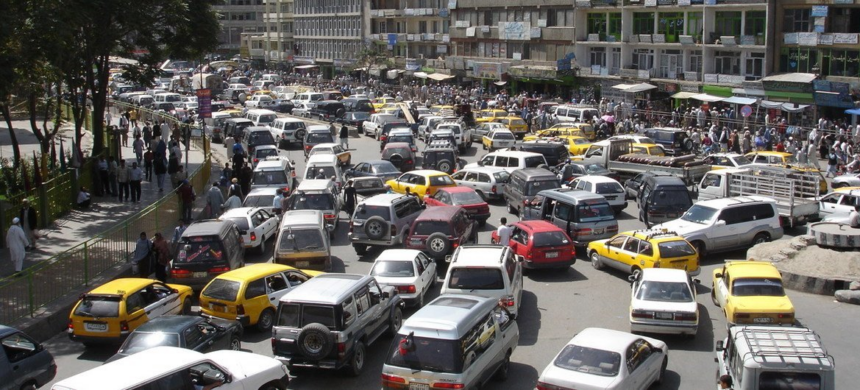RASC News Agency : As Kabul’s residents grapple with mounting economic hardship, pervasive insecurity, and the psychological toll of protracted instability, a new affliction has compounded their suffering unbridled noise pollution. Once the faint hum of a city striving for normalcy, the Afghanistani capital has now erupted into a relentless crescendo of disarray, where unregulated noise has become both symptom and symbol of a deeper administrative collapse. Across every alley and artery of Kabul, the auditory assault is inescapable: shrill loudspeakers of roaming vendors, incessant honking of unruly traffic, chaotic shouting from all directions. The sheer volume and intensity of these sounds have turned daily life into an ordeal stripping the city’s population of tranquility and eroding mental well-being. What should be a matter of civic management has, under Taliban rule, metastasized into yet another crisis.
The Taliban, now two years into their de facto administration of Kabul, have shown neither the capacity nor the will to address this spiraling chaos. Despite growing public outcry, the regime remains conspicuously silent, seemingly unmoved by the citizens’ pleas for relief and order.
Abdul Qadeer, a resident of the Taimani district, described the reality in stark terms:
“Kabul is now a lawless city devoid of peace, day or night. My infant wakes screaming from the jarring volume of street loudspeakers. No one listens. The Taliban are obsessed with enforcing submission, not serving the people or the city.”
Norullah, a university student living in Karte Naw, emphasized the mental strain caused by the cacophony:
“When we’re supposed to be focused for our exams, the noise invades our bones. There’s no sanctuary not in mosques, not in homes, not even in the classroom. There is no regulation. No order. Only sound and chaos.”
Many Kabulis believe the Taliban’s failure to impose even basic municipal controls has emboldened a wave of opportunistic street vendors many of whom disregard urban etiquette and invade public space with high-decibel loudspeakers. Their aggressive advertising, often conducted at all hours, shows little regard for children, the elderly, or the sick. Zabihullah, a shopkeeper in District 11, offered a striking comparison:
“Each morning, when I open my shop, I feel like I’m stepping into a battlefield of sound. Screams from one corner, honks from another, megaphones directly ahead. Is this a city or a marketplace gone feral? The Taliban claim to govern, yet they can’t manage a single roundabout.”
Despite widespread complaints, the Taliban-controlled municipality has neither proposed a plan nor introduced any policies to mitigate the issue. Sources within the city suggest that informal ties between Taliban members and street vendors have created a zone of impunity allowing lawlessness to deepen unchecked. In functioning metropolises, noise pollution is treated as a public health and quality-of-life issue, addressed through regulation and enforcement. In Kabul, however, where civic accountability is absent, disorder has become institutionalized. Governance, such as it is, appears performative focused more on controlling dissent than delivering basic services.
As Kabulis raise their voices, those cries are lost in the very noise they seek to escape. Their call is not merely for silence, but for a return to dignity, to order, and to governance that listens. But under Taliban rule, the city remains suspended in disarray. And until true accountability returns, Kabul will remain a city where even silence like security, stability, and sovereignty is a dream deferred.






